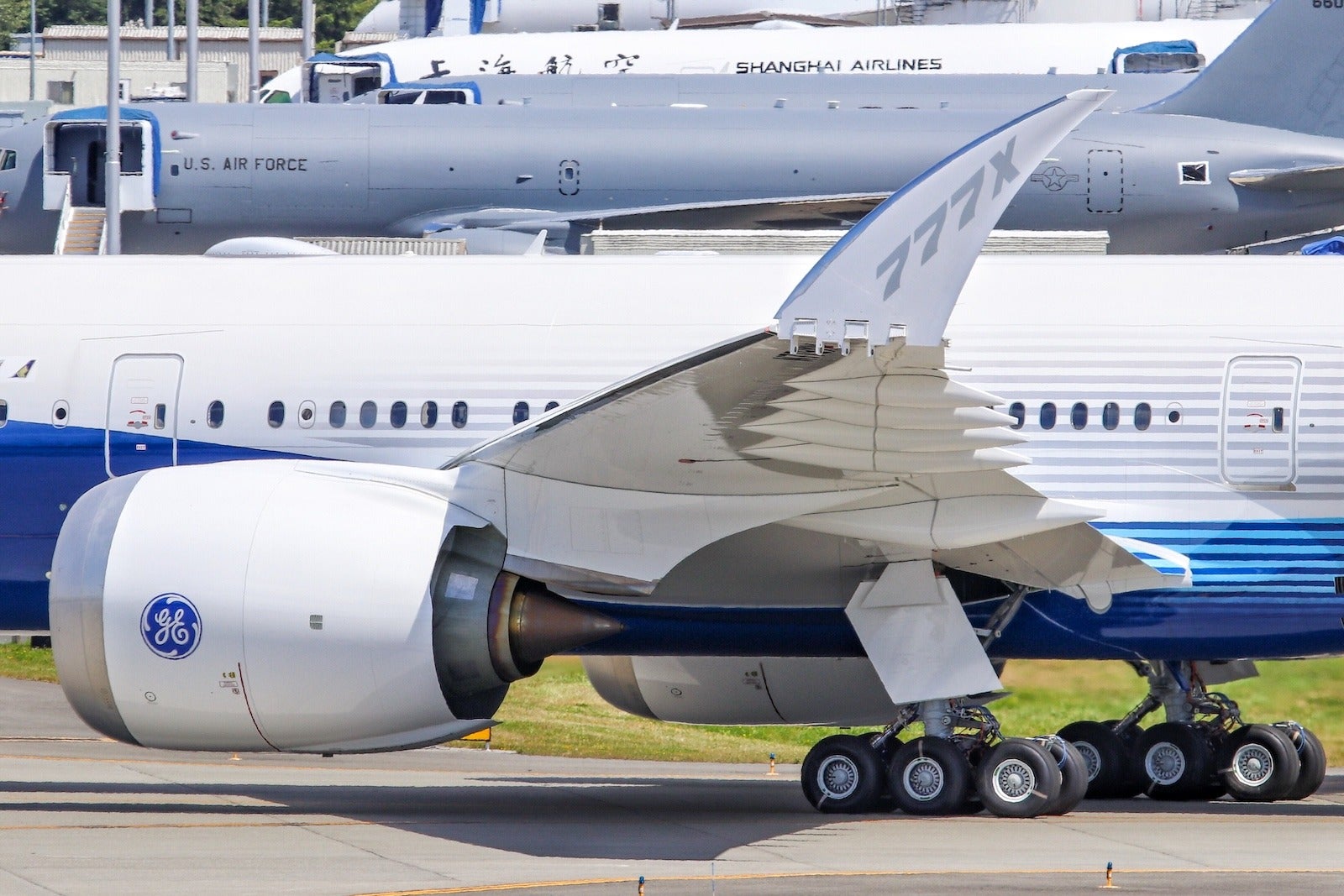Boeing is preparing to resume certification flight tests for its long-delayed 777X aircraft as early as this month.
According to an Aviation Week report, Boeing is set to conduct a test flight on its third 777-9 aircraft as early as January 15.
The certification program had been stalled since August due to engine thrust link failures. The Aviation Week report stated that these thrust link components have now been replaced after compounded delays caused by a 53-day machinists strike ground production to a halt.
The 777X has undergone a number of technical testing and certification issues since its first introduction in 2013. Boeing originally planned for the aircraft to enter service by 2020.
But yearslong delays would come during a December 2020 flight test when the aircraft performed an “uncommanded pitch event” causing the nose of the jet to pitch up or down without pilot input.
In October 2024, Boeing further delayed its first planned Boeing 777X delivery to 2026. The company also announced it would lay off roughly 10 percent of its workforce by January 2025.
“Beyond navigating our current environment, restoring our company requires tough decisions and we will have to make structural changes to ensure we can stay competitive and deliver for our customers over the long term,” said Boeing CEO Kelly Ortberg in a letter to employees announcing the delivery delays and layoffs.
Assuming Boeing meets its 777X delivery goal in 2026, that will put the company six years behind its intended launch for the aircraft.
Q4 Deliveries Announced
Ahead of Boeing’s fourth-quarter financial results scheduled for January 28, the company announced major program deliveries across its commercial and defense sectors.
The company reported 36 737 deliveries in Q4 2024 and 265 737s for the full year. Three 767s were delivered in Q4 2024 with 18 being delivered for the full year.
Out of 14 777s delivered in 2024, three were delivered in Q4. Fifteen 787s were delivered in Q4 out of 51 delivered that year.
In total, Boeing delivered 57 commercial airplanes in Q4 and 348 for the full year.
Credit: flyingmag.com











